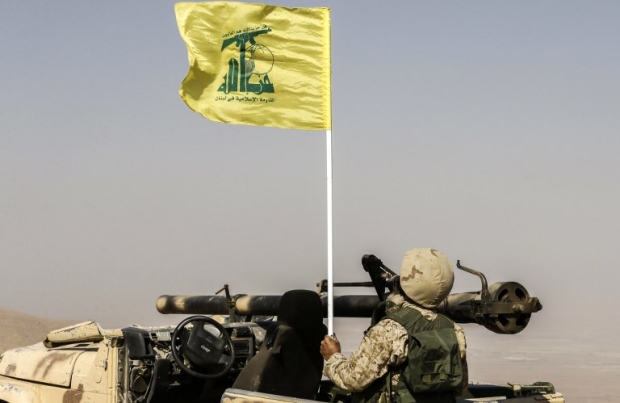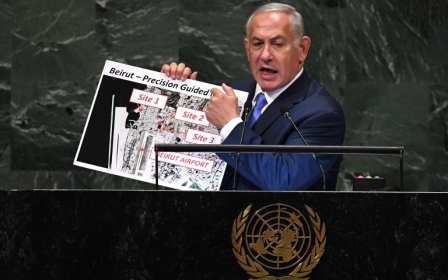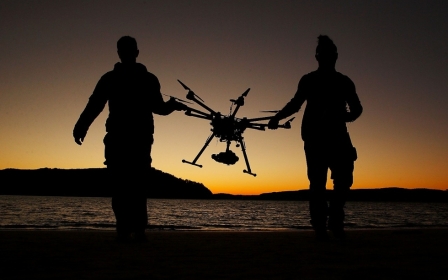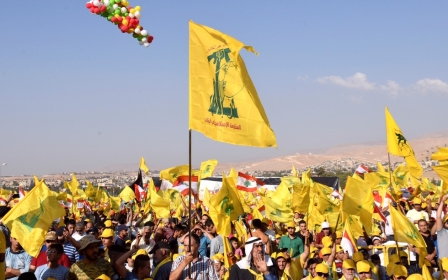Hezbollah: The real winner of the Syrian war?
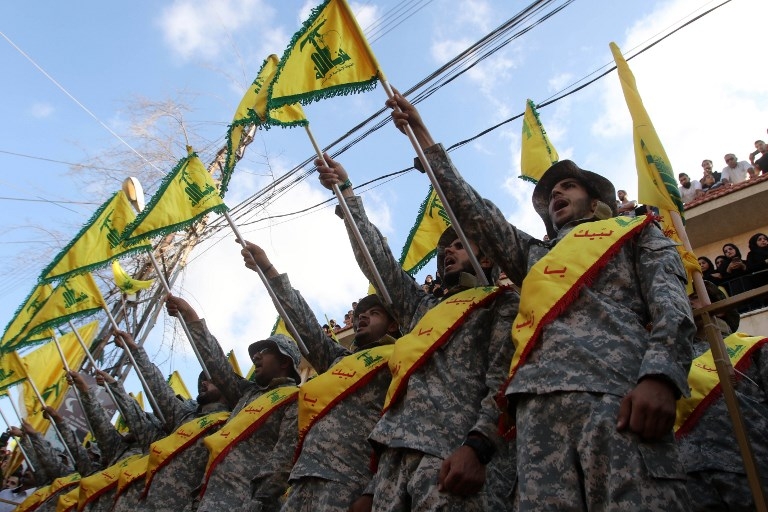
In hindsight, it was obvious why Hezbollah entered the Syrian war. President Bashar al-Assad’s potential fall was an existential threat that would cut its supply lines with Iran and, though Secretary-General Hassan Nasrallah was initially reluctant, fighters were dispatched from 2012 onwards.
Today, it’s clear that Hezbollah’s involvement was one of several key interventions that helped to save Assad, but what has it meant for the Lebanese movement? Is the “Party of God” stronger or struggling after six years of war?
Alongside Assad's survival, Hezbollah has seen several benefits for its involvement in Syria. Three stand out: improved military experience, enhanced military equipment and personnel, and expanded regional clout.
Urban warfare
In terms of military experience, the conflict was quite unlike the wars fought with Israel since the 1980s, forcing Hezbollah to adapt and learn new skills. It now has experience in urban warfare, fighting inside enemy territory, working with air support, and collaborating with non-Hezbollah groups, including major state militaries, such as Russia, and non-Arabic speakers, such as Afghani and Pakistani Shia militias.
In terms of military equipment, Iran has used the war to massively increase Hezbollah’s stockpiles, which now include guided missiles, unmanned armed drones, short-range ballistic missiles and anti-tank missiles. In terms of numbers, it now has approximately 130,000 rockets and missiles, compared with 15,000 on the eve of the 2006 war.
Iran has used the war to massively increase Hezbollah’s stockpiles, which now include guided missiles, unmanned armed drones, short-range ballistic missiles and anti-tank missiles
As for personnel, to fight in Syria, Hezbollah had to massively increase its recruitment. It expanded its recruiting pool by relaxing previously strict ideological and age requirements. This has given it a permanent “army” of 20,000 fighters, alongside tens of thousands more Lebanese reservists and allied Syrian proxy militia.
Hezbollah’s regional clout has also been boosted, now having a presence in Iraq and Yemen, as well as Syria. Up to 500 Hezbollah specialists have been sent to Iraq since 2014 to train the Hashd al-Shaabi against the Islamic State and others, while Nasrallah plays a regular mediating role between Iraqi Shia factions.
An unknown number of Hezbollah operatives have also been sent to Yemen to train Houthi fighters, while Hezbollah now has direct relations with Russia, at both an operational and political level. The result is a transformed Hezbollah: it entered Syria as a local Lebanese movement, but it is now a significant regional armed player.
Domestic consequences
Yet, there have been costs. The death count has been high. Analysts believe Hezbollah has lost between 1,000 and 2,000 fighters in Syria - up to 10 percent of its fighters, including high-quality commanders and veterans of the 1990s and 2006 Israel wars.
There have been grumblings about the high casualty figures among Hezbollah’s Lebanese popular base, and a conscious effort to seek more recruits from Lebanon’s eastern Bekaa-Hermel region rather than the more traditional strongholds of the south and southern Beirut to partly limit this fallout.
There have been other domestic consequences, too. In 2013-14, jihadists, sympathetic to the anti-Assad opposition, launched attacks on Hezbollah and mainly Shia-populated areas in Lebanon. This was ultimately overcome through military campaigns and domestic politicking. Indeed, today, Hezbollah looks strong in Lebanon.
Its allies are in government, including President Michel Aoun, while its long-term rival, the March 14 Alliance, has fractured and its leader, Saad Hariri, is weak and acquiescent.
More pressing are concerns that Israel may launch a significant attack to counter Hezbollah’s growing power. Any future war would be far more destructive to both Israel and Lebanon than in 2006, and this has thus far deterred both sides - but an accidental outbreak is always possible, especially given recent tensions over Hezbollah’s presence in the Syrian Golan Heights.
Russia’s presence in Syria as a possible mediator may calm the situation, and thus far, Israel has launched tens of attacks in Syria without provoking a significant escalation on either side. However, fine lines are being walked.
Emerging more powerful
Finally, it is unclear what Hezbollah's future will be in Syria itself. The movement's leaders have said they will withdraw once a political settlement is agreed, and there has been a recent reduction in numbers as violence has diminished. Perhaps fearful of losing any more precious fighters, Hezbollah has shifted from a combat role to training Syrian proxies and pro-Iranian Afghani and Pakistani forces.
That said, Hezbollah seems to be establishing a permanent presence in key strategic places such as Qusayr, Qalamoun and Sayyeda Zeinab. Moreover, given how close Lebanon is, it can easily send combat troops over should Assad or Iran need them for future assaults on Idlib or the Eastern Euphrates.
While it has proven itself a loyal and valuable ally over the course of the Syrian conflict, its leadership is probably conscious that it cannot sustain heavy combat losses indefinitely, and will hope it can keep numbers to a minimum as the war moves forward.
On balance, Hezbollah has emerged from the Syrian conflict well. It is now a far more powerful, well-trained regional power than it was before the war. However, it is still limited financially and in terms of recruits, and may quietly be hoping that the Syrian war can end soon and that a new conflict with Israel can be avoided so that it can consolidate its newly improved position.
- Christopher Phillips is reader in international relations at Queen Mary, University of London and associate fellow at Chatham House’s Middle East and North Africa Programme. He is author of The Battle for Syria: International Rivalry in the New Middle East, a new updated paperback edition of which is available from Yale University Press.
The views expressed in this article belong to the author and do not necessarily reflect the editorial policy of Middle East Eye.
Photo: Members of Lebanon’s Hezbollah movement stand at attention during the funeral of a fighter killed on the eastern border with Syria on 28 August 2017 (AFP).
This article is available in French on Middle East Eye French edition.
New MEE newsletter: Jerusalem Dispatch
Sign up to get the latest insights and analysis on Israel-Palestine, alongside Turkey Unpacked and other MEE newsletters
Middle East Eye delivers independent and unrivalled coverage and analysis of the Middle East, North Africa and beyond. To learn more about republishing this content and the associated fees, please fill out this form. More about MEE can be found here.



